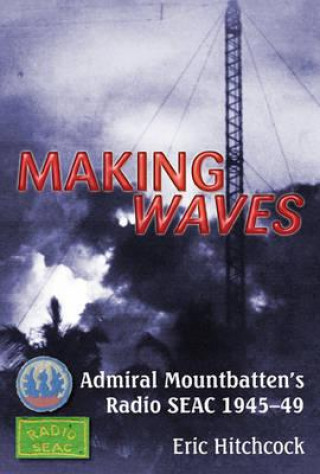
Kód: 04322857
Making Waves
Autor Eric Hitchcock
The story of British Forces Broadcasting began officially on 1st January 1944 in North Africa. Mobile stations were used in the advance northwards through Italy, and followed closely behind the troops after D-Day as they fought th ... celý popis
- Jazyk:
 Angličtina
Angličtina - Vazba: Brožovaná
- Počet stran: 224
Nakladatelství: Helion & Company Limited, 2011
- Více informací o knize

765 Kč
Dostupnost:
50 % šance Máme informaci, že by titul mohl být dostupný. Na základě vaší objednávky se ho pokusíme do 6 týdnů zajistit.
Máme informaci, že by titul mohl být dostupný. Na základě vaší objednávky se ho pokusíme do 6 týdnů zajistit.Prohledáme celý svět
Mohlo by se vám také líbit
-

Macmillan Readers Macbeth Upper Intermediate Reader Without CD
328 Kč -

Ellie And The Hedgehog
584 Kč -

Getting into Teacher Training
2043 Kč -

Maria
750 Kč -

Matthew and His Dog Named Blue
452 Kč -

Mindsight
775 Kč -

Matter, Energy and Mentality: Exploring Metaphysical Reality
244 Kč -

Macrophages
2899 Kč -

3 Commando Brigade in the Falklands: No Picnic
493 Kč -

Hippo and the Unicorn
322 Kč -

Johannine Question
1978 Kč -

Woman Of No Importance
493 Kč -
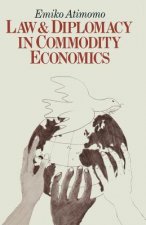
Law and Diplomacy in Commodity Economics
1665 Kč -

Mathematik für die Berufsfachschule Typ Wirtschaft und Verwaltung
1224 Kč
Darujte tuto knihu ještě dnes
- Objednejte knihu a zvolte Zaslat jako dárek.
- Obratem obdržíte darovací poukaz na knihu, který můžete ihned předat obdarovanému.
- Knihu zašleme na adresu obdarovaného, o nic se nestaráte.
Informovat o naskladnění knihy
Zadejte do formuláře e-mailovou adresu a jakmile knihu naskladníme, zašleme vám o tom zprávu. Pohlídáme vše za vás.
Více informací o knize Making Waves
Nákupem získáte 77 bodů
 Anotace knihy
Anotace knihy
The story of British Forces Broadcasting began officially on 1st January 1944 in North Africa. Mobile stations were used in the advance northwards through Italy, and followed closely behind the troops after D-Day as they fought their way across Europe into Germany. However, this approach was not suitable for the war east of Suez. The India and South-East Asia Commands (SEAC) covered such a huge area that other means were needed to deliver programmes to the forces in that theatre. A start had been made in Delhi in 1944, where a station had been set up which used air time provided by All-India Radio on one of its transmitters. Efforts to improve welfare facilities were made by Vice-Admiral Mountbatten, soon after he arrived to take up his appointment as Supreme Allied Commander, South East Asia. He set up a forces newspaper, and started experimental radio transmissions, but found there were financial constraints on what could be achieved. Friends and relatives back home became unhappy about the forces' living conditions, and articles appeared in the English press. These came to Churchill's notice, and he was persuaded to send Lord Munster on a fact-finding tour to establish what improvements were needed. His report was made available to M.P.'s just before Christmas 1944, when Churchill addressed the Commons on the situation. Lord Munster had noted the station in Delhi, but wrote that transmitters were needed for forces broadcasting, and that many more receiving sets were required. Discussions involving the War Office and the BBC reached the conclusion that the best option was a powerful short wave transmitter, supported by another with less power. This was approved by the War Cabinet, along with most of Munster's recommendations. What was much more difficult to resolve was the disagreement between those who wished to have the station in Delhi, and Mountbatten who wanted it under his command, in Ceylon. The text of a signal is included in which he set out his reasons. The furious argument was decided in his favour, and the result was Radio SEAC. Early estimates of targets for when the station might go on the air proved to be optimistic. They underestimated the difficulty of shipping, from England to Ceylon, the components of a big transmitter, complete with its own power supply. Several aerial towers (300 feet high) had to be dismantled, shipped and re-erected. In order to provide some broadcasting as soon as possible, the small transmitter was used for about a year before the powerful one went on the air in May 1946 - long after the war was over. Even readers with some knowledge of the technical details of radio receivers may be surprised by photographs showing the sheer size of the components used in the big transmitter. One could justify the huge expense of the transmitting station on the grounds that when it was not longer needed for forces broadcasting it could serve as a relay station for the BBC. This would mean, for example, that the BBC Overseas Service would be received well in Australia. It was used in this way for a short time, but independence for Ceylon led to the station being handed over to the country's new government. The story of Radio SEAC, and Mountbatten's pivotal involvement in it, has remained untold until now. Eric Hitchcock presents a balanced and fascinating account, blending military, social, political and scientific history together to produce an important account.
 Parametry knihy
Parametry knihy
Zařazení knihy Knihy v angličtině Humanities History History: earliest times to present day
765 Kč
- Plný název: Making Waves
- Autor: Eric Hitchcock
- Jazyk:
 Angličtina
Angličtina - Vazba: Brožovaná
- Počet stran: 224
- EAN: 9781906033958
- ISBN: 1906033951
- ID: 04322857
- Nakladatelství: Helion & Company Limited
- Rozměry: 234 × 156 mm
- Datum vydání: 15. March 2011
Oblíbené z jiného soudku
-
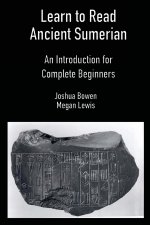
Learn to Read Ancient Sumerian
789 Kč -

Russian Journal
356 Kč -

King's Two Bodies
680 Kč -

Heart of Europe
517 Kč -

Armies of Castile and Aragon 1370-1516
441 Kč -

One Hell of a Gamble
677 Kč -

Rise and Fall of Ancient Egypt
463 Kč -

Guns, Germs, and Steel
298 Kč -

The Origins of Totalitarianism
302 Kč -

Illustrated Encyclopedia of Uniforms of World War I
543 Kč -

The Art of Combat
880 Kč -
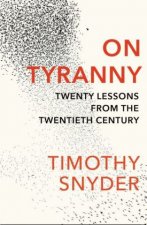
On Tyranny
212 Kč -

Homo Ludens
303 Kč -

Tuesdays With Morrie
302 Kč -

History of the Decline and Fall of the Roman Empire
356 Kč -

King Leopold's Ghost
302 Kč -

Meditations
223 Kč -

Streams of Gold, Rivers of Blood
775 Kč -
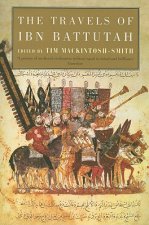
Travels of Ibn Battutah
302 Kč -

Augustus
410 Kč -
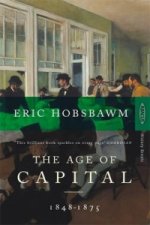
Age Of Capital
410 Kč -

Egyptian Book of the Dead: The Book of Going Forth by Day : The Complete Papyrus of Ani Featuring Integrated Text and Full-Color Images (History ... M
730 Kč -

Deng Xiaoping and the Transformation of China
788 Kč -
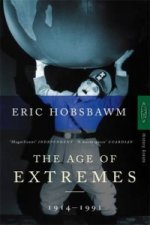
Age Of Extremes
487 Kč -

John Skylitzes: A Synopsis of Byzantine History, 811-1057
969 Kč -

Arms and Armour of Late Medieval Europe
276 Kč -

Alexander the Great
421 Kč -

End of Days
204 Kč -
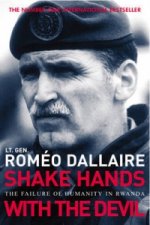
Shake Hands With The Devil
378 Kč -

Complete Roman Army
543 Kč -

Distant Mirror
356 Kč -

Fall of the Roman Empire
614 Kč -

Fifties
485 Kč -

After the Ice
463 Kč -

Histories
146 Kč -

Savage Continent
410 Kč -

Oxford IB Diploma Programme: The Cold War: Superpower Tensions and Rivalries Course Companion
1371 Kč -
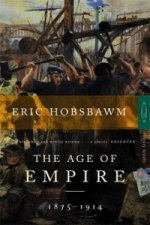
Age Of Empire
410 Kč -

Pompeii
302 Kč -

Life in a Cave
177 Kč -

Oxford Illustrated History of Prehistoric Europe
874 Kč -

On the Ocean
923 Kč -

Flowers of Battle The Complete Martial Works of Fiore dei Liberi Vol 1
3491 Kč -

On Ancient Warfare
765 Kč -

Access to History for the IB Diploma: Causes and effects of 20th-century wars Second Edition
905 Kč -

Safe Area Gorazde
517 Kč -

Yoga Body
456 Kč -

Fear and Loathing on the Campaign Trail '72
356 Kč -

Fall of Carthage
410 Kč
Osobní odběr Praha, Brno a 12903 dalších
Copyright ©2008-24 nejlevnejsi-knihy.cz Všechna práva vyhrazenaSoukromíCookies


 Vrácení do měsíce
Vrácení do měsíce 571 999 099 (8-15.30h)
571 999 099 (8-15.30h)